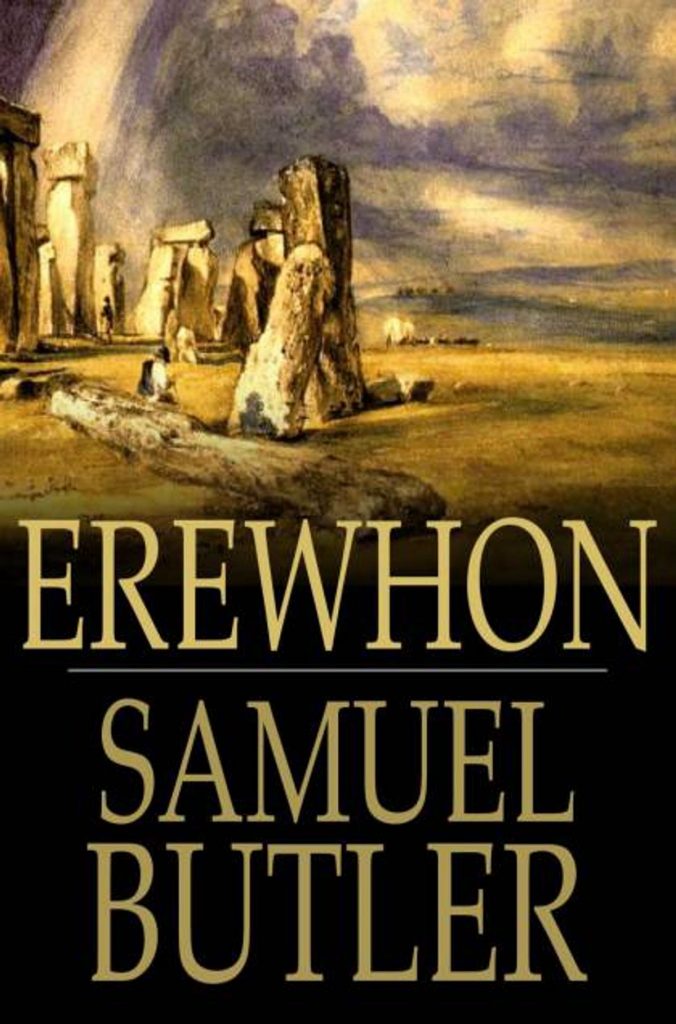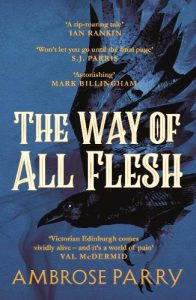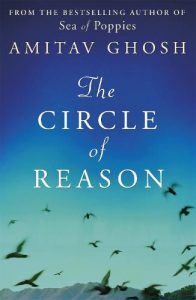
Butler’s name was known to me through his translations of Homer’s Iliad and Odyssey, as well as his idiosyncratic conviction that both had been composed by a female author. Having then discovered that he was better known in other circles for his Erewhon, I was intrigued to discover more.
The more astute readers will notice that Erewhon, originally published anonymously in 1872, is (almost) ‘nowhere’ reversed, and this book was accordingly Butler’s attempt to write a utopian ‘travelogue’, partly based upon an autobiographical account of his emigration to New Zealand to become a sheep farmer. Here Butler comes into contact with the strange people known as ‘Erewhonians’, who adopt a series of increasingly bizarre and paradoxical beliefs about the nature of crime versus illness, the dangers of machines (the Erewhonians are committed Luddites), and the consciousness of carrots. The text is a rather transparent attempt to send up aspects of Victorian society that Butler thought strange and absurd, with his mockery of the learning of Greek and Latin, as well as Homer, being more than a little self-deprecating.
Of some relevance to our part of the world, and myself, is what the Erewhonians think of the University of St Andrews’ motto ‘ever to excel’, itself a quotation from the Iliad:
“I told them of Homer’s noble line to the effect that a man should strive ever to be foremost and in all things to outvie his peers; but they said that no wonder the countries in which such a detestable maxim was held in admiration were always flying at each other’s throats. ‘Why,’ asked one Professor, ‘should a man want to be better than his neighbours? Let him be thankful if he is no worse.’ I ventured feebly to say that I did not see how progress could be made in any art or science, or indeed in anything at all, without more or less self-seeking, and hence unamiability. ‘Of course it cannot,’ said the Professor, ‘and therefore we object to progress’”.
Butler’s attempts to satirise the world in which he found himself is not always quite as compelling as this, occasionally becoming slightly tedious, and one does feel like one is sometimes missing the point of the joke. Nevertheless, I think Erewhon is well worth reading, and is brief enough that, despite its unevenness, it does not outstay its welcome.


